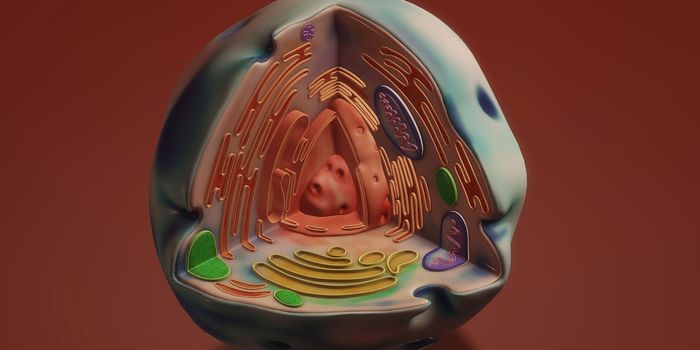Biomarkers That Predict Crohn's Disease Are Identified
A series of studies published in Gastroenterology has outlined new approaches in predicting inflammatory bowel disease (IBD), and how some environmental factors may contribute to the disorder.
"Early identification of individuals at high risk for disease development could allow for close monitoring and interventions to delay, attenuate, or even halt disease initiation. This is highly relevant as we seek to predict and prevent IBD, which continues to sharply increase in numbers across the globe," noted Jean-Frederic Colombel, MD, Professor of Medicine (Gastroenterology) at the Icahn School of Medicine at Mount Sinai and Co-Director of Mount Sinai's Susan and Leonard Feinstein Inflammatory Bowel Disease Clinical Center. "In the absence of a cure, our clinical strategy will center on aggressive and innovative mechanisms to predict and prevent the disease."
The CALM (The Effect of Tight Control Management on CD) study followed 122 patients that had been recently diagnosed with Crohn's disease. It found that the earlier a patient reached a point of few or no symptoms (deep remission), the better their outcome - early deep remission was linked to an 81 percent reduction in adverse events over about three years.
"The data suggests strongly that achieving deep remission early in the course of Crohn's disease can lead to disease modification with a significant decrease in long-term complications. The implication is that we can play a big role in slowing the disease progression if we catch and treat Crohn's early, highlighting the relevance of prediction and prevention in treating Crohn's," said the lead study author Ryan Ungaro, MD, MS, Assistant Professor of Medicine (Gastroenterology) at the Icahn School of Medicine at Mount Sinai.
Another study called PREDICTS (Proteomic Evaluation and Discovery in an IBD Cohort of Tri-service subjects) involved data from US military personnel and the Department of Defense. It revealed 51 biomarkers that can predict Crohn's disease five years before it would typically be diagnosed, with 76 percent accuracy. There was no single marker or marker combination found that was predictive of ulcerative colitis.
"The study suggests that biological processes are activated many years before Crohn's, opening the possibility of developing targeted strategies that could work to prevent or delay disease onset. Although we recognize that a preventive strategy may still be many years down the road, studies analyzing samples taken years before diagnosis will likely contribute to a greater knowledge of disease pathogenesis and have the potential to help us improve treatments. When we combine this finding with the knowledge that early intervention can lead to better outcomes for our Crohn's patients, we have a truly relevant headline for a disease that has no cure," said the lead study author, Joana Torres, PhD, MD, Adjunct Assistant Professor of Medicine (Gastroenterology) at the Icahn School of Medicine at Mount Sinai.
Another research report analyzed the link between IBD and metal exposure in early life using baby teeth from controls and IBD patients (that had been kept by their parents, a tradition in Portugal where the study was conducted).
"The data suggests that metal exposure during a critical window in early life may be a risk factor for IBD," noted Manish Arora, PhD, Professor of Environmental Medicine and Public Health at the Icahn School of Medicine at Mount Sinai.
IBD tends to run in families, and it is four times more likely among Ashkenazi Jews. Researchers assessed the prevalence IBD in 38 Ashkenazi Jewish families and found that siblings affected by the disease were more likely to be sequentially clustered.
“The clustering of affected siblings suggests there are factors beyond genetics that lead to the development of IBD in these multiplex families, likely attributable to a shared environment,” said lead study author Elizabeth Spencer, MD, Pediatric Advanced IBD Fellow at the Icahn School of Medicine at Mount Sinai. “We are continuing to follow these families in an effort to pinpoint the precise factors. If we can identify these factors, we could alter them as a preventative measure for those at high risk of developing IBD.”
Sources: AAAS/Eurekalert! via The Mount Sinai Hospital / Mount Sinai School of Medicine, Gastroenterology








